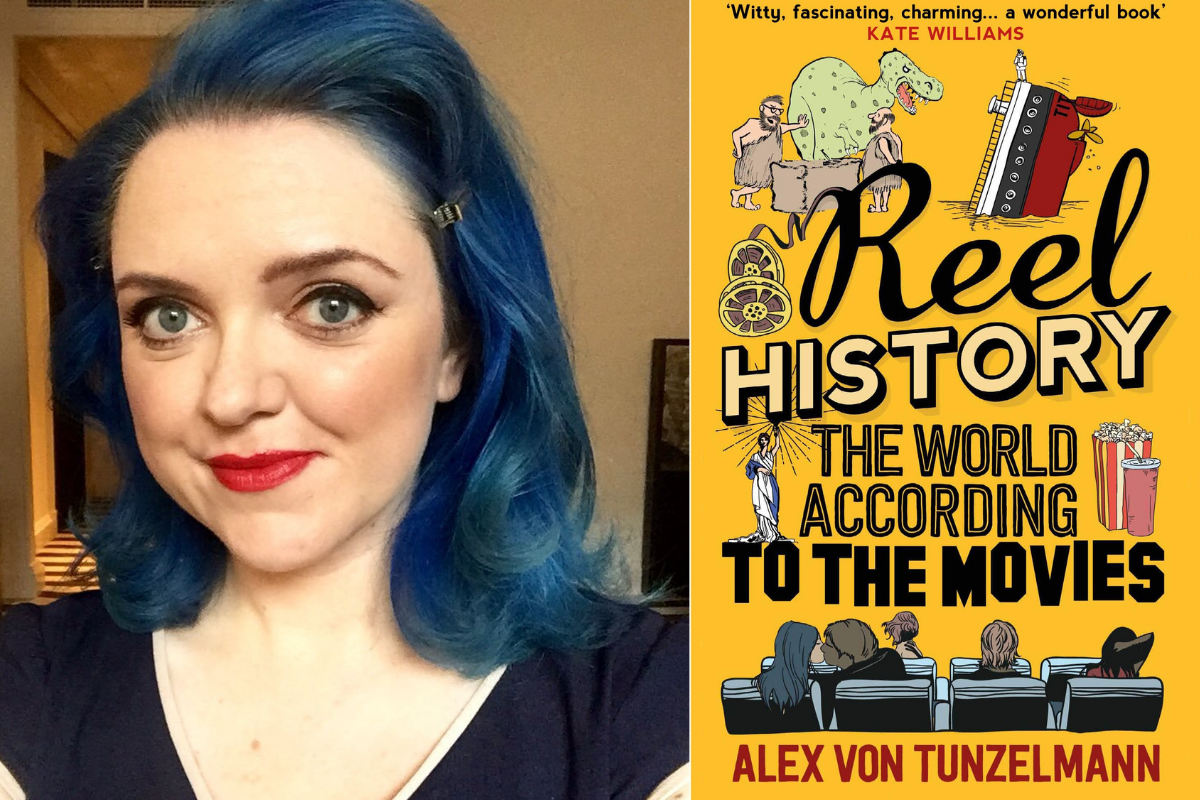
What happens when a renowned historian narrates history as told by feature films? Utter hilarity, if the historian happens to be Alex von Tunzelmann. Von Tunzelmman has given us books like Indian Summer (on the last days of the British Rule in India) and Blood and Sand (on the Suez crisis) in which she showed her gift of being able to narrate historical events with an accessible and yet often entertaining hand. And now she brings that same hand to bear on one of the most readable film books of recent times.
In Reel History, von Tunzelmann decides to use films to track human history. Basically she looks at different periods of human history through films. No, that is not as academic as it sounds. She takes different phases of human history and then looks at the films that covered them. So, we get underway with “The Ancient World” and the first film to be covered is One Million Years B.C. followed by the likes of Land of the Pharaohs, The Prince of Egypt, Troy and even Asoka. von Tunzelmann, to her immense credit does not stick just to Hollywood flicks but also includes films from other countries. Mind you, Hollywood is dominant, but then given its popularity, that is hardly surprising.
But it is the manner in which these films are discussed that makes the book special. Each film gets a few pages to itself, with von Tunzelman discussing different facets of it, and then pointing out where the film sticks to history and where it diverges from it. And she does it with her tongue very firmly in her cheeks, adding grades for entertainment and history in the process. She does not let hype or reputation get in her way of grading. Witness what she says of Oliver Stone’s epic JFK:
“JFK is a cleverly constructed, tightly written and sometimes breathtakingly well-acted movie – and perhaps one of the most appalling travesties of history you are ever likely to see.”
Mel Gibson’s Braveheart gets this treatment:
“Tremendously lauded at the time of its released and showered with five Oscars – including Best Picture – it is, historically speaking, one of the daftest films ever made.”
And these are not random comments – the author backs them up with facts. No, von Tunzelmann is not always this scathingly critical. She appreciates Lion of the Desert and parts of Gandhi, but her being a historian gives her the sort of perspective that few film critics or reviewers have. And as she points out flaw after flaw in “historical” films, you start realising just how badly you have been misled by filmmakers around the world. That what is often done in the name of “entertainment” sometimes results in gross misinformation and the propagation of myths in the name of “history.” And this perhaps highlights the danger of using that line to promote films – based on real life incidents.
From Gandhi and Lawrence of Arabia and Ben Hur to The King’s Speech, Pearl Harbour and Churchill, history has often inspired filmmakers to come out with movies. The key word here, however, is “inspired.” For no matter how big the claims are about the films being based on something that really happened, the fact is that directors more often than not change quite a few things in the name of “creative licence.” These might be to make the film flow more smoothly or to make it more entertaining, but all said and done, a totally accurate representation of historical events is a rarity on the silver screen.
And Reel History gently rips apart the fiction that historical films are well, based on history. No names are spared as real facts are added to reel fiction, often showing how ridiculous the latter are. Pearl Harbour, The Titanic, Lawrence of Arabia…all are placed in the dock of history, and more often than not, are found guilty of misrepresentation. But the fact that von Tunzelman delivers judgement while making you smile makes this Reel History a must-read for those who love history and/or films
Reel History: The World According to the Movies by Alex von Tunzelmann is available on Amazon
